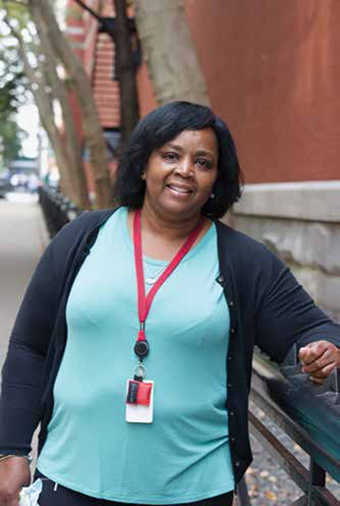Lenox Hill Neighborhood House: Preserving Community During COVID-19
October 30, 2020
NYC’s century-old CBO implemented supports for vulnerable clients and the workers who care for them.

“Our 1199 colleagues are the bedrock of our 126-year-old settlement house—they deliver the finest programs and services to 15,000 New Yorkers in need,” says LHNH Chief Operating Officer Mark Andermanis. “They care for and assist homeless women, thousands of older adults, recent immigrants, people living with disabilities, and more.
They make 4,000,000 fabulous farm-to-table meals each year for low-income New Yorkers. They have always, always been essential, and they have proven time and time again that they are heroes.”
Originally founded as an early childhood education center, today’s LHNH serves clients who are among the most vulnerable to COVID-19 and sensitive to service disruptions.
Bearing this in mind, staff and administration at the community based organization (CBO) leapt into action, making plans to preserve continuity of services and ensure that staff could continue serving Manhattan residents who were already deeply affected by COVID-19.
LHNH administration was also mindful that workers would need support and services; many of them live in affected areas and come from communities with high infection and mortality rates. In order to keep workers safe and contain the impact of the pandemic, LHNH put into place a broad-ranging package of supports for caregivers: preserving jobs, health care and benefits for all workers; increasing the minimum salary to $40,000; paying for private cars to and from work so workers could avoid public transportation; payout of unused and accrued vacation; adjusting sick time rules so staff didn’t have to use discretionary sick time; providing laptops for all to support work at home; giving an advance of two weeks’ pay at the outset of the pandemic; ensuring that PPE was always replenished on a regular basis; offering a host of staff wellness activities; and more.
Geriatric Care Manager Phillip Goldman says one of the toughest parts of the pandemic was missing co-workers on whom he had relied as a tight-knit and supportive group. “March, April, and May were really stressful and really tragic. We knew older adults were more vulnerable. I expected to lose people, and I did,” says Goldman. “Being isolated made it harder.”
But an empathetic management eased the burden, says Goldman: “I’m grateful that my supervisor encouraged us to take the time we needed to heal and not do work that was painful or triggering.”
Annette Lyons, an LHNH housing specialist who works with homeless women, praised the administration’s emphasis on communication and commitment over the course of the pandemic.
“Every Friday, the executive directors would send out an email, keeping us updated on their plans and making sure we’d know what’s going on,” says Lyons, an 1199 delegate who has worked at LHNH for 25 years. “They really stepped up and did a good job.”
- 1199 Magazine - September / October 2020

